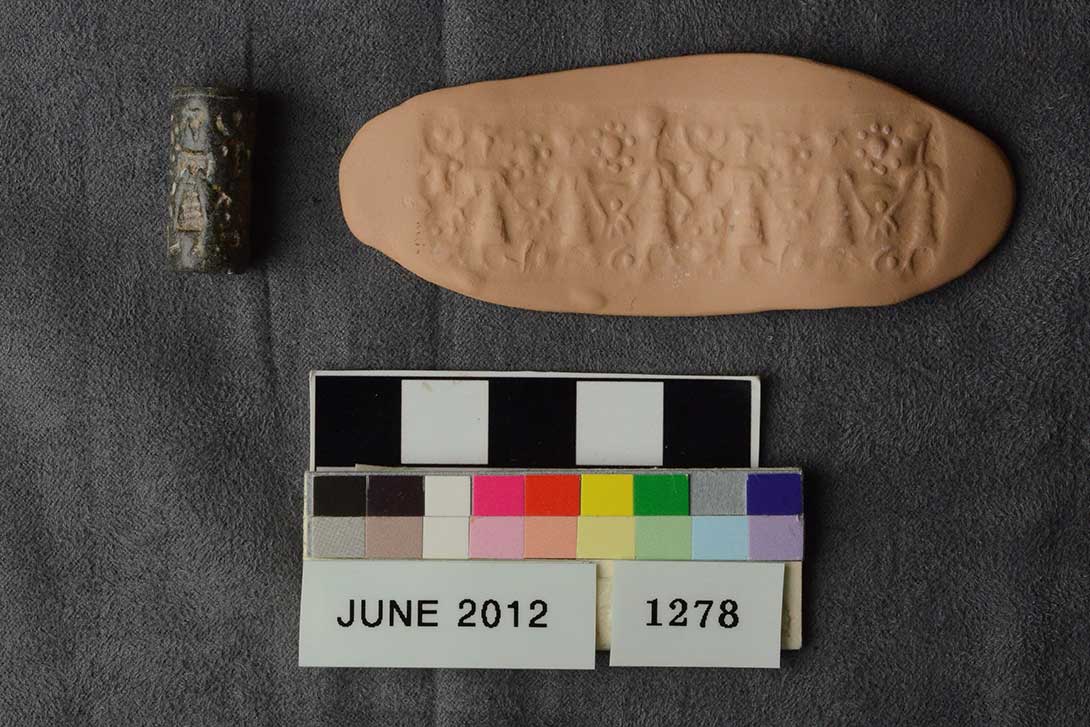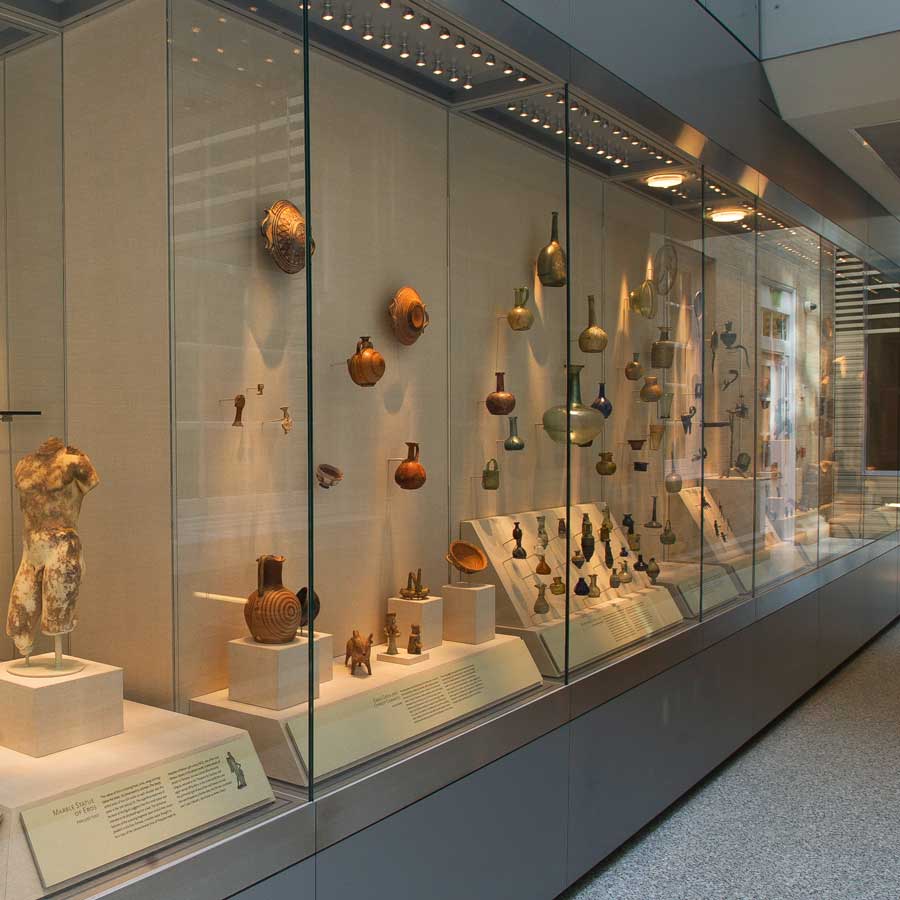Ancient Cylinder Seals
Late Bronze Age Cyprus
By Anna Glenn

Measurements: Length: 2.1 cm, Width: 0.9 cm
Material: Stone, Hematite
Date/Culture: Late Bronze Age Cypriot, 1450-1050 B.C.E.
Provenance: Theodore Marburg Collection of Cypriot Antiquities, collected in Cyprus between 1879 and 1891. Donated to the Archaeological Museum in 1900.
The island of Cyprus, located in the Mediterranean off the coast of Syria, was a major center of trade during the Late Bronze Age, ca. 1450-1050 B.C.E. Cypriot traders traveled all around the Mediterranean world, selling primarily copper in exchange for other commodities. It was during this period that Cypriot craftsmen first produced their own cylinder seals. These seals, and impressions of them, have been found at a number of sites around the Mediterranean world – not only on Cyprus, but also at Ugarit, a major harbor town in northern Syria, and at other trading centers.
Although Cypriot seals in many ways imitated the styles of the mainland regions – especially Syrian styles – several distinctly Cypriot schools developed.
In numerous Cypriot seals, human figures are shown with high arches in their feet, and they often have puffed-out cheeks, and/or pincher-like hands. These features can be seen in seals 1278 (above), A.1016, and A.1020, 1279 (below).

Measurements: Length: 2.7 cm, Width: 1.1cm
Material: Stone, Hematite
Date/Culture: Late Bronze Age Cypriot, 1450-1050 B.C.E.

Measurements: Length: 1.6 cm, Width: 0.9 cm
Material: Stone, Hematite
Date/Culture: Late Bronze Age Cypriot, 1450-1050 B.C.E.
A particular style of griffin also appears on a number of Cypriot seals – this creature is shown in seal 1279. Another common element on Cypriot seals is a bull’s head or bucranium, often used as a filling motif. Similarly, bulls paired with lions are a common theme. This is exemplified by seal A.1011.

Measurements: Length: 2.2 cm, Width: 0.8 cm
Material: Stone, Hematite
Date/Culture: Late Bronze Age Cypriot, 1450-1050 B.C.E.

Measurements: Length: 1.8 cm, Width: 0.8 cm
Material: Stone, Hematite
Date/Culture: Late Bronze Age Cypriot, 1450-1050 B.C.E.
Another distinctly Cypriot motif is an ox-hide shaped ingot, which appears on seal A.1015. This shape represents the copper ingots that were exported from Cyprus during the Late Bronze Age: actual copper ingots of this shape have been discovered in the remains of ancient shipwrecks off the Syrian coast. Finally, the circle-and-dot design is another very common Cypriot filling motif, and can be seen on seals 1271, 1278, and A.1016.

Measurements: Length: 2.0 cm, Width: 0.9 cm
Material: Stone, Hematite
Date/Culture: Late Bronze Age Cypriot, 1450-1050 B.C.E.

Measurements: Length: 2.7 cm, Width: 1.1 cm
Material: Stone, Hematite
Date/Culture: Late Bronze Age Cypriot, 1450-1050 B.C.E.
Provenance: Theodore Marburg Collection of Cypriot Antiquities, collected in Cyprus between 1879 and 1891. Donated to the Archaeological Museum in 1900.
References
Collon, Dominique, 1987. First Impressions: Cylinder Seals in the Ancient Near East. London: British Museum Publications.
Merrillees, Parvine H, 1990. Cylinder and Stamp Seals in Australian Collections. Deakin University Archaeology Research Unit Occasional Paper 3. Victoria.
Porada, Edith, ed., 1948. Corpus of Ancient Near Eastern Seals in North American Collections: The Collection of the Pierpont Morgan Library. The Bollingen Series 14 (2 vols.). Washington, D.C.